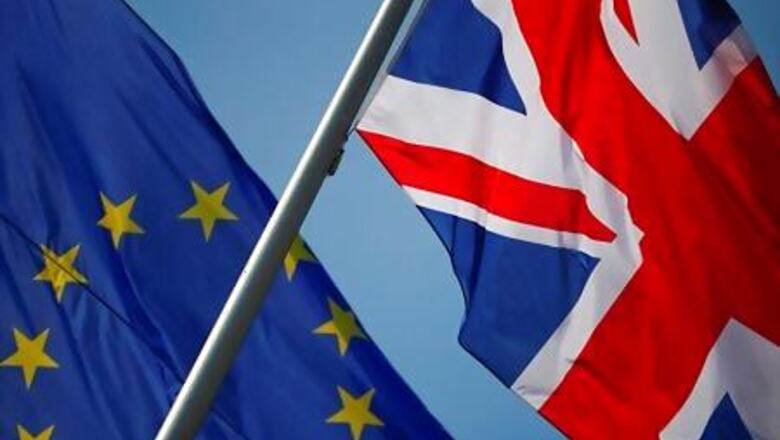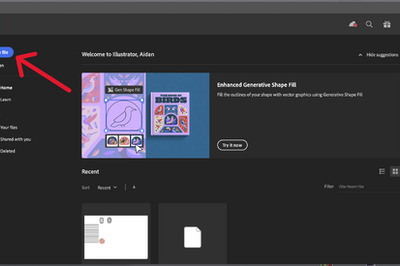
views
LONDON: Brexit talks plunged into fresh crisis on Monday after Britain warned the European Union it could undercut the divorce deal it signed unless the bloc agrees to a free trade deal by Oct. 15.
Below are details of the saga:
NO EURO
After the Labour Party’s Tony Blair won a 1997 election, his finance minister Gordon Brown effectively ruled out entry into the euro currency by setting out five economic tests that had been worked out with his top aide, Ed Balls, in a New York taxi.
That meant one of the EU’s biggest economies would not be at the top table of decision making.
REFERENDUM
When the Conservatives returned to office in 2010 after 13 years of Labour government, new Prime Minister David Cameron’s tenure was defined by Europe.
To shore up support in the face of a split party and a challenge from the small but staunchly eurosceptic UK Independence Party (UKIP), Cameron promised an “in-out” referendum on a renegotiated deal on EU membership in the party’s 2015 election manifesto.
Cameron said he was satisfied that negotiations with the EU gave Britain enough for him to back a “remain” vote. But the turmoil of the euro zone crisis, fears about mass immigration and miscalculations by Cameron’s remain campaign prompted people to vote to leave 52 to 48 percent on June 23, 2016.
Cameron resigned the morning after the vote and was replaced by Theresa May.
NEARLY OUT
May triggered Article 50, the formal EU divorce notice, in March 2017, setting the exit date of March 29, 2019 for Britain to leave – with or without a deal.
In a bid to gain backing for her Brexit plan, she called a snap election for June 2017. The gamble backfired. She lost her parliamentary majority and formed a minority government, supported by the eurosceptic Northern Irish Democratic Unionist Party (DUP).
On Nov. 13, she reached agreement on the terms of Britain’s departure from the bloc with EU leaders. Lawmakers voted 432-202 to reject the deal on Jan. 15 in the biggest parliamentary defeat for a government in modern British history.
Weakened by a series of defeats over her plans and forced to delay Brexit, May resigned in June 2019. Boris Johnson won the premiership.
JOHNSON ERA
After promising to be tougher with the EU, Johnson, in an attempt to undermine opponents of Brexit in the eyes of the public, ordered parliament to be temporarily suspended. The decision was ruled unlawful by the Supreme Court.
But Johnson clinched agreement from then-Irish Prime Minister Leo Varadkar for a Brexit deal. The slightly altered variant of May’s deal was approved by the EU in October 2019. Parliament did not accept Johnson’s plan to fast track it into British law, and he abandoned attempts to pass it.
Eventually, Johnson’s next plan – to hold a snap general election in search of a majority that would vote for his deal – was approved. The Conservatives won a majority of 80 seats, its most since the 1987 election.
His deal was approved by parliament and Britain left the EU on Jan. 31.
TRADE
Despite having formally left, Britain remains a member in all but name until the end of 2020 as the two sides try to clinch a trade agreement.
About $900 billion in annual trade is at stake, though the talks have snagged on fishing rights and state aid rules.
Britain is pressing one of the EU’s most sensitive buttons – fear that a post-Brexit Britain could become a much more agile, deregulated free-market competitor on its border – and with access to EU markets – by using selective state aid.
Britain has repeatedly said it will not blink and that the EU does not yet grasp that it is now dealing with an entirely independent country.
Johnson was to say on Monday that there is no sense in thinking about timelines beyond Oct. 15.
“If we can’t agree by then, then I do not see that there will be a free trade agreement between us, and we should both accept that and move on,” he will say, according to comments released by his office.
Disclaimer: This post has been auto-published from an agency feed without any modifications to the text and has not been reviewed by an editor



















Comments
0 comment